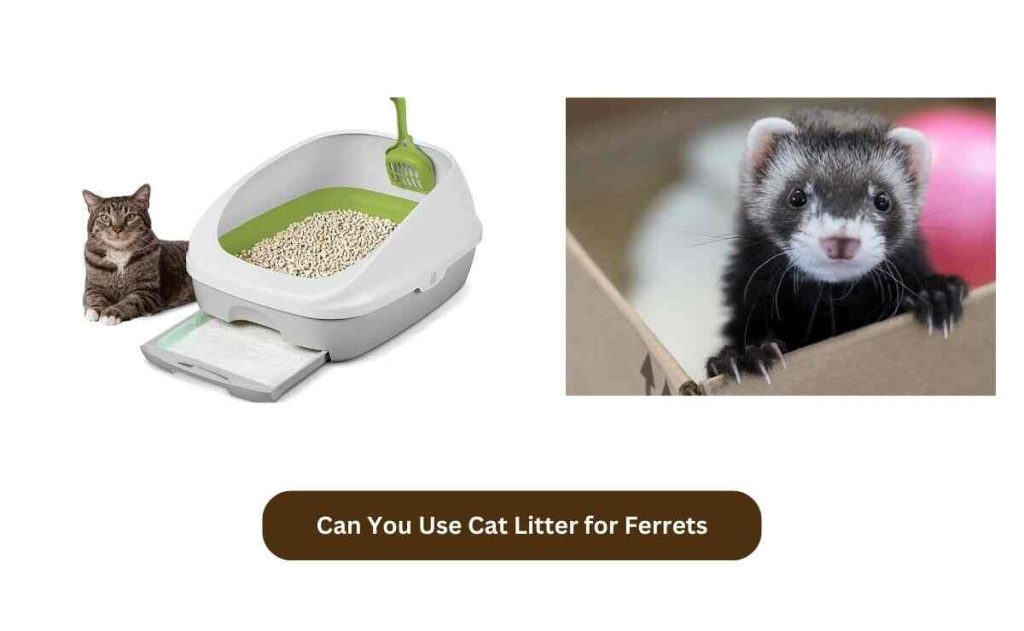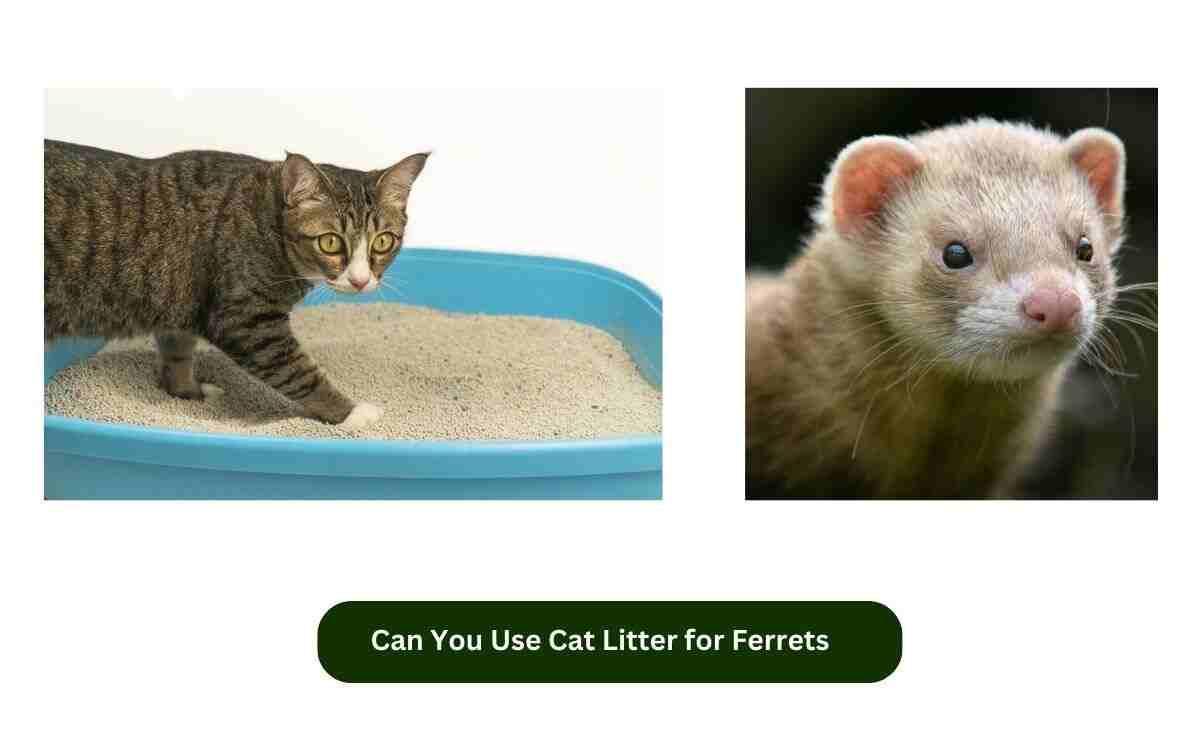If you’re a ferret owner, you know how important it is to provide your pets with a clean and comfortable living space. One of the essential components of any ferret habitat is litter, as these curious creatures are known for their frequent bathroom breaks.
However, with so many different types of litter on the market, it can be challenging to determine which one is best for your furry friends.
One option that may come to mind is cat litter. After all, it’s widely available and often affordable – but can you use cat litter for ferrets? In this article, we’ll explore the pros and cons of using cat litter in a ferret enclosure and offer tips on choosing the right type of litter for your furry companions.
Can You Use Cat Litter for Ferrets?

Yes, you can use cat litter for ferrets. Cat litter is a great option for ferret owners because it is generally more affordable than ferret-specific litter and is often made of natural materials like clay or wood chips. The texture of the litter also makes it easy for ferrets to dig in and cover up their waste, which keeps your home clean and odor-free.
When using cat litter for ferrets, it’s important to choose one that is dust-free and non-toxic. Avoid clumping cat litter as they can be dangerous if ingested by your pet. Also, make sure the litter is deep enough so your ferret can bury its waste without making a mess. Always keep the litter box clean by scooping out waste daily and changing out the entire box every few weeks.
Why Litter Box is Important for A Pet Ferret?
A litter box is an essential item for any pet ferret. Not only does it give them a designated area to go to the bathroom, but it also helps reduce odors and keep your home clean.
Ferrets have a natural instinct to bury their waste, so having a litter box will help them follow that instinct. It’s also important to use the right type of litter in the box.
Ferrets can be sensitive to scents, so look for an unscented litter that won’t irritate their noses. Additionally, avoid clumping litter as ferrets are known to eat small pieces of it which can lead to digestive problems.
It’s important to remember that ferrets need regular access to their litter boxes in order for them to get used to using them consistently. Place the litter box in a quiet area away from where your ferret eats and sleeps and make sure you clean it regularly.
Do Ferrets Poop A Lot?
Yes, ferrets do poop a lot. Ferrets are small animals and they have a very fast metabolism, which means that they need to eat often and they produce a lot of waste. On average, ferrets will produce around 40-50 droppings per day. This can vary depending on the size of the ferret, their diet, and how much exercise they get.
Ferret droppings usually consist of small pellets that are dark brown in color. They should be firm and dry and should not smell too bad. If your ferret’s droppings seem wet or foul-smelling then it could be an indication of a health issue and you should take them to the vet for a checkup.
Overall, ferrets produce quite a bit of waste due to their high metabolism so it is important to keep up with cleaning their cage regularly to ensure that your pet stays healthy and happy!
Can Ferrets Be Litter Trained?
Yes, ferrets can be litter trained. The process is similar to training a cat to use a litter box. Start by providing your ferret with an appropriate litter box and fill it with a suitable type of litter. Place the box in an area that your ferret spends a lot of time in and make sure it’s easily accessible.
Encourage your ferret to use the litter box by placing treats or toys inside it and praise them when they do their business in the right place. Over time, your ferret will learn where they should go when they need to go to the bathroom. It may take some patience but if you stick with it, you’ll eventually have a well-trained pet!
What Type of Litter Box is Best for Ferrets?
When it comes to litter boxes for ferrets, the most important factor is size. Ferrets are small animals and need a litter box that is appropriately sized. Look for a litter box that is at least 12 inches wide and 8 inches deep. This will give your ferret plenty of room to move around comfortably.
You should also look for a litter box with low sides so your ferret can easily get in and out without any difficulty. If you have multiple ferrets, consider getting two smaller litter boxes instead of one large one to give each ferret its own space.
Finally, it’s important to choose a litter box with an enclosed top or lid to help contain odors and keep your ferret from kicking the litter out of the box. With these factors in mind, you should be able to find the perfect litter box for your furry friend!
How to Train A Ferret to Use the Litter Box?
Training a ferret to use the litter box is relatively easy, but it does require patience and consistency.
The first step is to choose an appropriate litter box. Ferrets prefer boxes that are low to the ground and have high sides so they can easily climb in and out. Place the box in an area of your home where your ferret spends most of its time.
Once you’ve chosen an appropriate box, you’ll need to train your ferret to recognize it as a place for elimination.
To do this, place your ferret inside the box whenever you notice them sniffing around or circling – this will help them associate the box with elimination behavior. You should also reward them with treats or praise when they use the litter box successfully. With consistent training, your ferret should soon learn that the litter box is its designated spot for elimination.
Conclusion
Cat litter can be a safe and effective option for ferrets as long as it is made from natural materials and does not contain harmful chemicals or additives. It is important to monitor your ferret’s behavior and health when introducing new litter types to their environment.
With proper research and consideration, using cat litter can be a convenient solution for ferret owners.
Remember to always prioritize your furry friend’s well-being and consult with a veterinarian if you have any concerns. Give your ferret the best possible care by choosing the right kind of litter that suits their unique needs.
